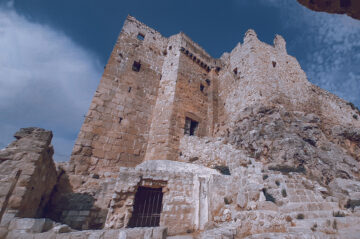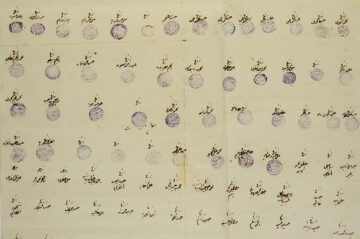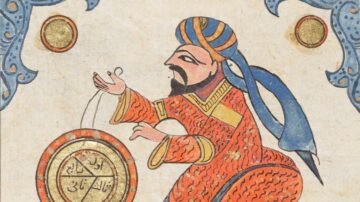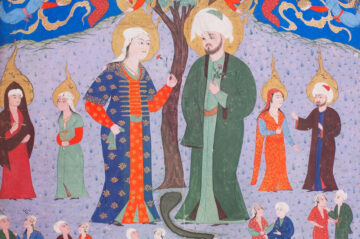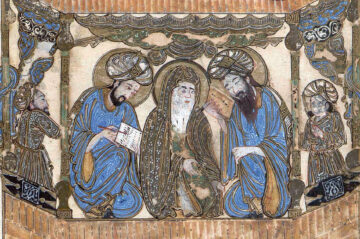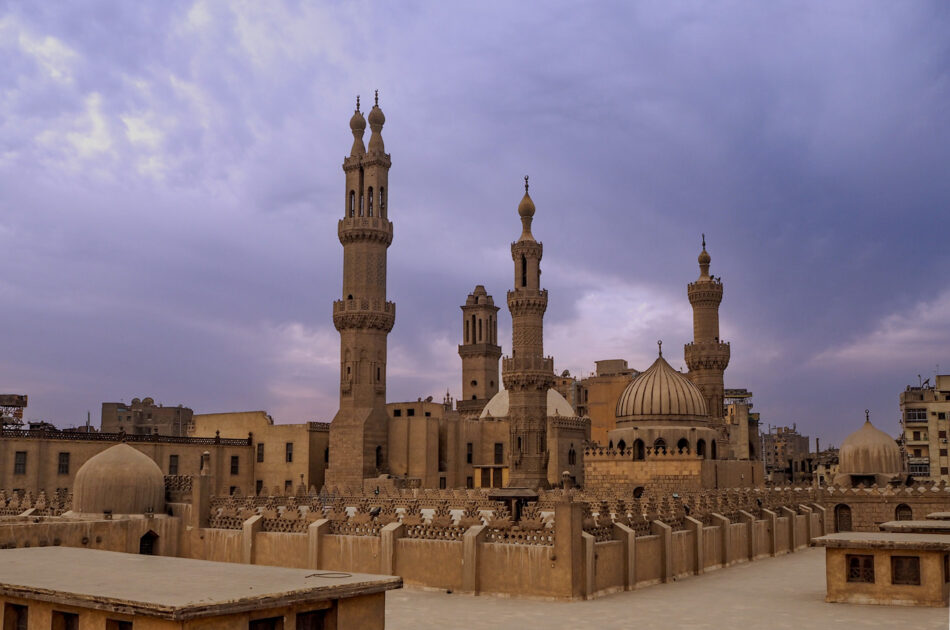
-
Status
Applications Closed -
Date
05 Jul 2024
This lecture will be held at 16.00 BST in Arabic.
The IsmailisAdherents of a branch of Shi’i Islam that considers Ismail, the eldest son of the Shi’i Imam Jaʿfar al-Ṣādiq (d. 765), as his successor. are well known for their intellectual activities and contribution to knowledge both before and after the declaration of the Fatimid state in North Africa in 909 CE, whether through sessions at the Fatimid court or at training sessions in different circles. The Egyptian period of the Fatimid dynasty witnessed great advances in scientific learning, which played a role in influencing state policies and strategies. These were supervised firstly by the Imam-Caliphs and then the Chief Dāʿī, who was responsible for directing scientific activities, supervising the ‘houses of wisdom’, overseeing the various dāʿīLit. ‘summoner,’ a term for missionary amongst various Muslim communities, especially used among the Ismailis before and during the Fatimid period as well as in the Alamut period of Ismaili…s, disseminating knowledge in the Fatimid capital of Cairo, and playing the role of political advocate for the Fatimid Imam-Caliphs.
The second period of Ismaili intellectual development occurred during the Nizārī period in Iran and Syria. The vizier Al-Afḍal b. Badr al-Jamālī and his sister supported al-Mustaʿlī’s claim to the Fatimid throne, which led to the exclusion of Mustaʿlī’s elder brother, the heir apparent, Nizār. The latter’s supporters established the Nizārī dynasty in Iran, which played an important role in preserving the cultural and religious heritage that had been dismantled by political conflicts. The Nizari Ismailis were also able to revive Fatimid intellectual traditions in their castles and established libraries and astronomical observatories. This was a unique period for the Ismailis who played a significant role in the political scene in Iran, Iraq, and the Levant, especially during the Crusades.
Speakers

Naçeur Seddiki
Naçeur Seddiki, director of the Higher Institute for the Humanities and Professor of History at the University of Jendouba, Tunisia, as well as Professor of the Anthropology of Religion at the University of Carthage. He is also a member of the Egyptian Academy of History, and several scientific academies in Tunisia.
He is the author of al-Qarmaṭiyya fī marjiʿīyatihā al-Ismaʿīlīyya (The Qarmaṭiyya with its Ismaʿīlī Roots), Mīthūlūjiyā adyān al-sharq al-adnā qabl al-Islām (The Mythology of the Religions of the Near East before Islam), and Tārīkh al-Yazīdiyya (The History of the Yazidis), among other publications.

Dr Nuha al-Sha‘ar
Dr Nuha al-Sha‘ar has a PhD in Islamic and Middle Eastern Studies from the University of Cambridge, MPhil in Educational Research from the University of Cambridge and an MA in African and Asian History the School of African and Asian Studies, SOAS. She has taught at various academic institutions in the UK, and the Arab world. Find out more on Dr Nuha al-Sha‘ar’s research and publications.
قلاع المعارف الإسماعيليّة
عرفت الإسماعيلية بحراكها الفكري والمعرفي قبل الظهور وبعد إعلان دولة الفواطم بالشمال الإفريقي سنة 909 م، سواء عبر المجالس والمسايرات بالبلاط الفاطمي وحلقات التكوين بالمجالس. أمّا في الطور المصري فعرفت حراك علميّ كبير دخل في إستراتيجيات الدولة التي يشرف عليها الإمام وهو الشخصيّة الأولى أما الشخصية الثانية هو داعي الدعاة وتعود للأخير القيادة العلميّة والإشراف على بيوت الحكمة وتجهيز الدعاة ونشر المعارف بالقاهرة وفي المجال السياسي والدعوي للفاطميين. وبعد حركة الأفضل بن بدر الجمالي بدعم ابنة أخته المستعلي في السيطرة على العرش الفاطمي على حساب أخيه الأكبر ولي العهد نزار، وهذا ما جعل الأطراف تتحرك وتنقذ الموقف السياسي وتعيد بعث الدولة النزارية في المجال الإيراني.
و عرفت الإسماعيلية انطلاقة ثانية في هذه الفترة حيث كان لها دور مهم في حفظ التراث الثقافي الذي دمرته الصراعات السياسيّة وإعادة إحياء علمي للفكر الفاطمي في دولة القلاع من بعث مكتبات ومراصد فلكية وتجهيز للدعاة، وبالتالي كانت تلك الحقبة مميزة في ولادة جديدة للخط النزاري الفاطمي علميا بدرجة كبيرة وسياسيا على مسرح أحداث إيران والعراق وبلاد الشام خاصة في الحروب الصليبية.
المحاضر

الناصر صديقي
محمد الناصر صديقي، باحث في التاريخ الوسيط والانثروبولوجيا التاريخية.
مدير المعهد العالي للعلوم الإنسانية جامعة جندوبة/ تونس 2020 / 2023 .
مدير قسم التاريخ بالمعهد العالي للعلوم الإنسانية بجندوبة 2017 / 2020
أستاذ جامعي بالمعهد العالي للعلوم الإنسانية جامعة جندوبة/ تونس
عضو مدرس في ماجستير الأديان المقارنة بكلية الآداب بمنوبة.
ومدرس انثروبولوجيا الأديان بالمعهد العالي للعلوم الانسانية بتونس/ جامعة قرطاج.
صدر له:
-كتاب “تاريخ اليزيدية” في طبعتين سنة 2008 و 2015 الصادر عن دار الحوار السورية.
-كتاب “فكرة المخلص: بحث في الفكر المهدوي” دار الجداول، بيروت 2012
كتاب “ميثولوجيا أديان الشرق الأدنى قبل الإسلام” دار الجداول بيروت، 2014 .
كتاب “القرمطية في مرجعيتها الإسماعيلية” منشورات مجمع الأطرش للكتاب المختص والمعهد العالي للعلوم الإنسانية بجندوبة/ معهد جندوبة.
عضو باحث بمخابر علمية في جامعات تونس ومنوبة ووهران وتلمسان- عضو الجمعية التاريخية المصرية.

نُها الشعّار
نُها الشعّار حازت على درجة الدكتوراة من جامعة كامبريدج، وهي أستاذ مشارك في قسم الدراسات القرآنيّة في معهد الدراسات الإسماعيليّة في لندن، كمّا تدرّس التاريخ الفكري الإسلامي والفلسفة الإسلاميّة والأدب العربي في الجامعة الأمريكيّة في الشارقة وجامعة لشبونة في البرتغال. ترّكز في بحثها على دراسة علم الأخلاق في السياقات الإسلاميّة وعلى تلقي القرآن في الأدب الإسلامي القديم ، وعلى تقاليد التفسير القرآني وأخلاقياته. من مؤلفاتها: الأخلاق في الإسلام: الصداقة في الفكر السياسي لأبي حيّان التوحيدي ومعاصرية (2015، بالإنكليزيّة) والكتاب الذي اشتركت في كتابته مع باحثين آخرين عن اللّه والعالم: طبعة نقديّة عربيّة وترجمة انكليزيّة لرسائل إخوان الصفاء 49-51 (مطبعة جامعة أكسفورد، 2019 بالإنكليزيّة). كمّا حرّرت وشاركت في العديد من الكتب من بينها: الإسلام في صقليّة: تفاعلات وتراث، و كتاب القرآن والأدب: تشكيل التقاليد الأدبيّة في الإسلام القديم (مطبعة جامعة أكسفورد، 2017 بالإنكليزيّة)، ومجلدات أخرى. وتقوم حالياً بإعداد كتاب عن الأخلاقيّات والتفاسير القرآنيّة. تشارك في هيئة تحرير العديد من السلسلات المتعلقة بالدراسات الإسلاميّة ومن ضمنها: مقاربات جديدة في الدراسات الإسلاميّة في جامعة إدنبرا، وسلسلة دراسات في علم الأخلاق في السياقات الإسلاميّة.
Cover image: al-ʾAzhar in Cairo. Photo by Russell Harris
Please note filming and photography may take place during the lecture for educational and promotional purposes.
The views and opinions expressed in the lecture are those of the presenter, and do not necessarily express the views or opinions of IIS, nor is promotion of this lecture an endorsement of the ideas presented.

